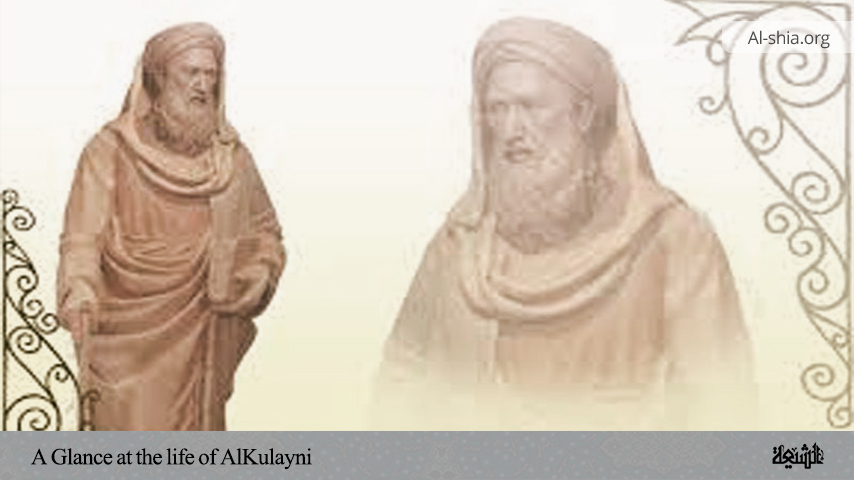In this part of the article titled “The Principles of Rights in the Sahifah Sajjadiyah”, we shall discuss some of the rights mentioned in the book.
The Right of God over Men
The first right stated by the venerable Imam is the right of God towards the servants. “But the greater right of God is this that you worship Him and take none as His partner. So every time you uphold this right with sincerity, God has made it incumbent upon Himself to render you needless and guard whatever is dear to you.”(1)
In this regard, the minor syllogism comes from the general principle of the Holy Quran. The Holy Quran has asked us, “Doth God not suffice his servant” (2) And we have answered, “You are our guardian.” (3)
The Imam states that the efficiency involved is that man should pay God’s right which is the greatest right. And that right includes believing sincerely in God. He who has God before his eyes in everything can entertain this pure oneness in his heart. It is appropriate here to quote Kashaf al-Ghata. Like some other jurisprudents, he believes that “bi hawlillah” (I rise with Allah’s power) is the continuation of the prostration prayer.
He believes that “I sit” along with: “I rise with the power of God” indicates that man needs God in things which demand power and energy and he is dependent upon Him in actions like sitting. (4) Hence, man is in constant need of God and he who remembers this need, will have in mind the right of God. Hence, the worshippers whether sitting or standing need to say that.
If someone reaches this stage of gratefulness to God, then all his dhikrs (remembrances of Allah) are like prayer and all his deeds are prayer and worship. There is a hadith that says, “He who has God in mind constantly is like one constantly praying.” (5) The Holy Qur’an says something similar, “Those who are constantly praying.” (6)
It must not be supposed that in this verse, there is talk of the timely worshippers. That idea is suggested in this verse: “Those who guard their prayers.” (7)
Baba Tahir’s quatrain suggests the same idea, “blessed be those who are constantly praying.”
The Right of Oneself over Oneself
In another part of the treatise, Imam Sajjad speaks of the right of oneself over oneself. In the Islamic thinking, man is not his own owner so he may treat himself the way he desires. This prayer all the prophets sing, “those who know no benefit for themselves, no harm, no death, no life and no resurrection.”(8)
Then it may be asked why Moses said to God; “I am the only master of myself and my brother.” (9)
Of course, it is probable that the meaning of the verse be such, “I am the master of myself and my brother is the master of himself.” In answer, it must be said that here, there is talk of religious ownership, not genetic ownership. Moses speaks to God and asks Him whether he is the master of himself and his brother is the master of himself or that everyone is their own master and no one can draw them to God.
But what has come in the prayer of all prophets is genetic ownership; namely, that man is not the genetic owner of himself, therefore he does not have any sort of right and must pay his rights.
The Right of Non-Muslims
Now we shall talk of the last part of that treatise. As you observed, we were determined to present some of the manifestations of the principles of Islamic thinking, and we do not consider even a drop of that sea. Therefore, we shall talk of the last part, “The rights of the non-Muslims (who are with you in this land and live in the shelter of the Muslims) are that you accept from them whatever God has accepted from them, and accomplish whatever God has promised them.
You do not have to be cruel to them and you have to leave them with the promises they have made; and decree as God has placed between you and them. You do not have to be cruel to them and you have to observe whatever God has placed as their rights; because the news has come to us that the holy Prophet said: I am the foe of those who are cruel to the non-Muslims with whom they have made promises.”(10)
You see how the things talked about concerning justice and Islamic conduct are prevalent as to people in other religions in this part of imam’s teachings. In other words, he who tyrannizes an infidel has shown animosity towards the holy Prophet. These types of teachings clearly show that Islam is an all-pervasive religion which has had pleasant behaviour towards people of different religions and never needs the teachings and principles of other religions in this regard.
NOTES:
________________________________
1. Ibid.
2. Surah az- Zumar 39:39
3. Surah as-Saba 34:41
4. Kashaf al-Ghata, p.294, line 1
5. Imam Baqir (P.B.U), Wasa’il al-Shi’ah, book of Salat, chapter 1, Al-Dhikr chapters, tradition no. 5.
6. Surah al-Ma’arij 70:23
7. Surah al-Mu’minun 23:9
8. Bihar al-Anwar, Vol.13, chapter 4, p.82, tradition no.9
9. Surah al-Ma’idah 5:25
10. Risalat al-Huquq, Haq al-Zama, p.37






